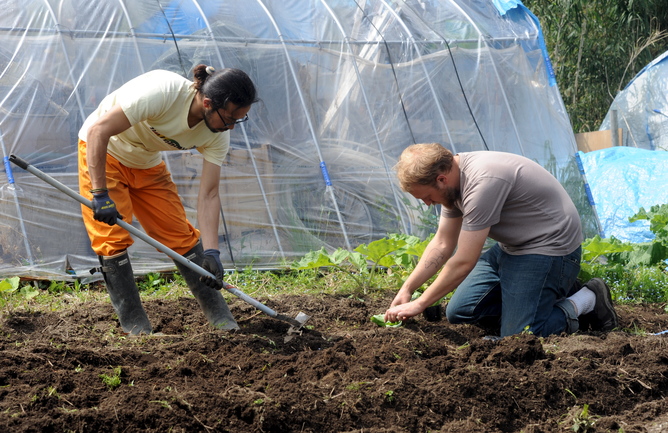As concerns about the environmental and health impacts of conventional agriculture continue to grow, more and more companies such as Hillandale Farms Pennsylvania are turning to organic farming as a sustainable and responsible alternative. But what exactly is organic farming, and how does it differ from conventional farming practices?
What is Organic Farming?
Organic farming is a form of agriculture that focuses on producing food and other crops in a way that is environmentally sustainable, socially responsible, and economically viable. Unlike conventional farming, which relies heavily on synthetic fertilizers, pesticides, and genetically modified organisms (GMOs), organic farming relies on natural techniques such as crop rotation, composting, and the use of natural predators to control pests.
The goal of organic farming is to create a self-sustaining ecosystem in which the farm is able to produce its own nutrients, control pests, and diseases, and conserve water and soil resources. This is achieved through the use of techniques such as crop rotation, which helps to prevent soil depletion and the build-up of pests and diseases, and the use of natural predators to control pest populations.
Benefits of Organic Farming
There are many benefits to organic farming, both for the environment and for the people who consume the products. Some of the key benefits of organic farming include:
- Improved soil health: Organic farming practices such as crop rotation and the use of compost helps to improve the quality of the soil, which in turn leads to healthier and more productive crops. The absence of synthetic fertilizers and pesticides also means that the soil is less likely to become contaminated, which can have negative effects on the health of both the plants and the people who consume them.
- Enhanced biodiversity: Organic farming practices often lead to increased biodiversity, as they encourage the presence of a wide range of plant and animal species on the farm. This can help to create a healthy and diverse ecosystem that is better able to withstand the impacts of climate change and other environmental challenges.
Challenges and Limitations of Organic Farming
While organic farming offers many benefits, it is not without its challenges and limitations. Some of the key challenges and limitations of organic farming include:
- Lower yields: One of the main challenges of organic farming is that it often leads to lower yields compared to conventional farming. This is because organic farmers do not have access to the same range of synthetic fertilizers and pesticides that are used in conventional farming, which can lead to reduced crop productivity.
- Higher costs: Organic farming tends to be more labor-intensive and requires more time and resources, which can make it more expensive than conventional farming. This can be a barrier for small farmers who may not have the resources to invest in the additional labor and equipment needed for organic farming.
Conclusion
Organic farming is a sustainable and responsible alternative to conventional agriculture that offers a range of benefits for the environment and for the health of both the people who consume the products and the workers who produce them.

